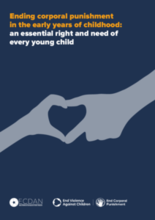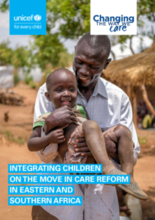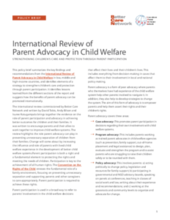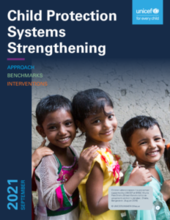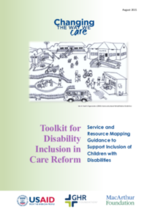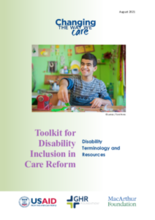Displaying 121 - 130 of 917
This toolkit includes guidance for implementing the care system assessment, the assessment framework itself, and corresponding training materials. Together, this guidance document, the framework and training resources are intended to support stakeholders to plan and conduct an assessment, use assessment results to develop a national strategy and, over time, monitor progress in strengthening national care systems.
Key principles, considerations and recommendations in applying the assessment and method details.
An overview of key considerations and steps to developing a national strategy for care reform
This briefing, authored by Jorge Cuartas with End Violence and the Early Childhood Development Action Network examines evidence from research on the impacts of violent punishment on young children, global prevalence and progress towards universal prohibition, and strategies to end corporal punishment. It adds yet more weight to the call that all countries must take steps to prohibit and eliminate violent punishment of all children without delay.
This short paper examines why children on the move need to be included in care reform in the region, how the care needs of these boys and girls can be met, and what lessons can be learned from the care of children on the move to inform the care of children more broadly.
This policy brief summarizes the key findings and recommendations from the International Review of Parent Advocacy in Child Welfare in low, middle and high-income countries, and identifies elements of a strategy to strengthen children’s care and protection through parent participation.
Guided by UNICEF’s Child Protection Strategy (2021 – 2030) which provides the overarching strategic framework for UNICEF’s child protection programming globally, the paper discusses key considerations that have shaped this approach.
This is a presentation for a half-day workshop on participation and self-advocacy approaches for working with children with disabilities and their families; includes slides, facilitation notes and a sample list of country-specific disability rights.
This guidance specifically refers to mapping of services as the process of locating and sharing information to a wide range of people about available services to support children with disabilities and their families.
The terminology and tips that follow may help as you use the Toolkit for Disability Inclusion in Care Reform and apply its principles to your program activities. It is recommended that you become familiar with these terms before reading the rest of the content and revisit as needed. Please keep in mind that disability is an evolving concept. Language that is preferred in one context may be different in another. Ask local organizations of persons with disabilities (OPDs) for the preferred terms in your language and country text.



